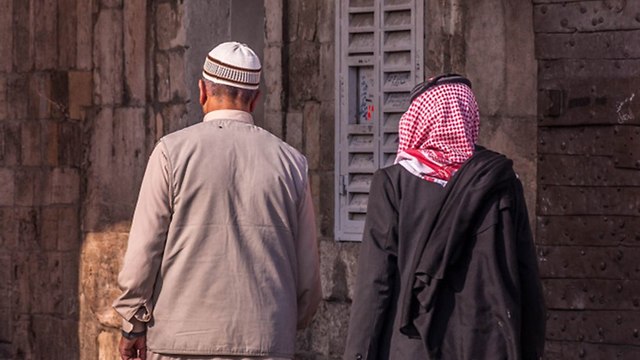
How educated Arabs present a dilemma for Israel
Op-ed: Unlike ultra-Orthodox Jews, country’s Arab sector is eager to acquire education and integrate into modern labor market, and although this is excellent news for economy, Israeli government views educated minority as a potential threat that might be able to form adequate political opposition and exacerbate current hostility.
Israel's economic strength is dependent on having a high percentage of educated people in the country. Unfortunately, many of its citizens, such as ultra-Orthodox Jews, not only refuse to acquire the kind of education required in order to integrate into a modern labor market, but also have unreasonably difficult pre-conditions for their consent to study and work.
On the other hand, the Arab population is eager to acquire education, and this is a quality that appears to characterize minority groups that have ambitions but lack material resources, which is evident by the fact that the number of Arab students has doubled within the last decade.
The proportion of Arab students in universities and colleges currently stands at 17 percent and is rapidly approaching the proportion of Arab citizens in the population. When it comes to medical schools in Israel, the Arab population is already represented to an extent that is compatible with its demographic, and their numbers in allied health professions is even higher.
Although presently most of the Arab students choose to acquire degrees in education and social sciences, fairly soon they will be a part of the country’s engineering sector as well.
This is not only excellent news for Israeli economy, but also an achievement that should be greatly appreciated in light of the difficulties the young Arabs in this country have to face.
Most of them grew up in families whose socio-economic status was inferior to that of their Jewish counterparts. Another obvious obstacle is the language, since by the end of high school, every Arab student must be proficient in two foreign languages—literary Arabic and Hebrew. The experts say that the authoritarian tradition prevailing in Arab society makes it arduous for the younger generation to develop a critical way of thinking that is required when it comes to academia in general and when it concerns advanced degrees in particular.
Nevertheless, in spite of everything, this is an achievement that the state institutions should be proud of. This is due to an intelligent and resourceful program developed by the Council for Higher Education that assists young Arabs to overcome their difficulties, and provides optimism during these dark times.
However, education is a ticking bomb and this is exactly how the Jewish states views this issue. For a country that oppresses its minorities, it is more convenient to deal with a minority that is ignorant, weak, quiet, poor, lacking international connections and having difficulty organizing effective political institutions.
It is easier to deal with "dignitaries" or government agents who are bought by promise of economic benefits. An educated minority, like the one that is rapidly developing and expanding in Israel, will become a stubborn opposition, armed with ideology, strategy and a refusal to be corrupted.
It will challenge the Jewish majority in order for its aspirations to be considered. The danger of exacerbating the current tensions is growing precisely because the situation of the Arab sector is improving in many ways.
And here lies a paradox: the state helps the Arab sector acquire education, but the society is not so tolerant as to make the sector feel entitled to a sense of partnership.
An educated person fosters expectations of reward for his talent and efforts, so when it turns out that hope is false and reality reveals to you that even if you are diligent and competent you will never receive equal opportunity and you will always raise suspicions—then a heart becomes bitter.
In a state that not only advocates full civil equality, but implements it as well, there is a chance that an educated minority will be integrated into the country’s general public, its culture, will let got of resentment that stems from the tragic history in order to develop a hybrid identity that could exist on it own within a wider, general identity.
However, a country that: emphasizes constantly the majority’s superiority, incites against the minority sector and threatens its culture and language, turns against anyone who undermines the official national narrative, negates a feasibility of a nationalism that is religiously neutral, glorifies the victories over said minority that have become victims of circumstance, and tries to erase the memory of their past—is a country that alienates the intellectuals among the minority and exacerbates their hostility.
I have had business with educated Arabs, because they are the avant-garde that walks ahead of everyone, but my words are applicable to anyone in the Arab sector because they are one fifth of the country's population.












